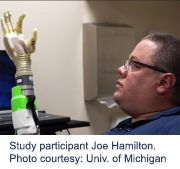
No matter whether your favorite team wins or loses, March Madness will likely put a slam dunk on your sleep habits. For many Americans, staying up late to watch NCAA basketball tournament games is a much-anticipated annual rite. But the American Academy of Sleep Medicine (AASM) warns that those late-night games can cause problems. “A… read on >






























